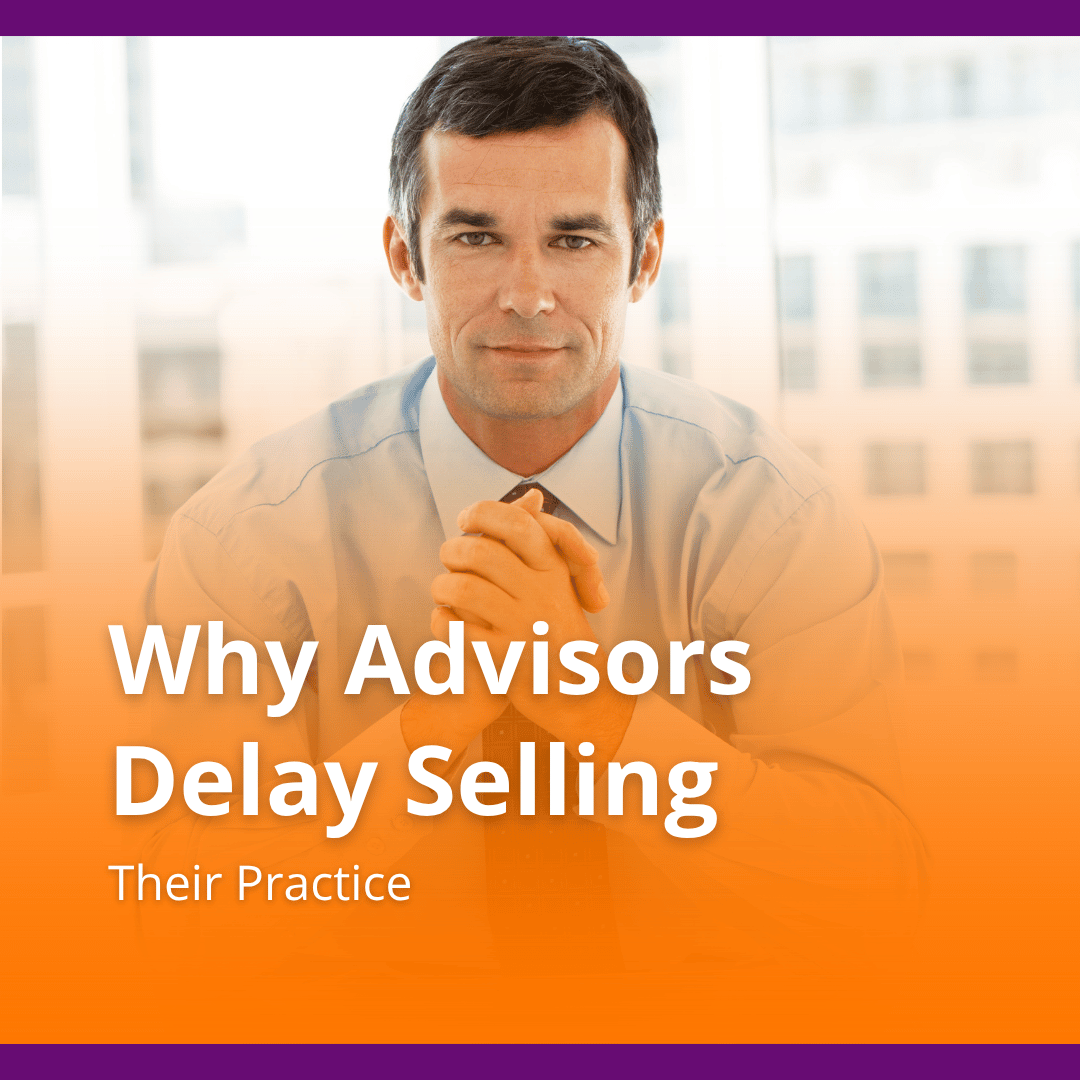How to Know If You’re Emotionally Ready to Sell Your Advisory Practice
You have pictured the day you sell your advisory practice. The deal closes. The pressure lifts.
Comprehensive, data-driven valuations and comparative equity analyses to accurately price your practice, establish market benchmarks, and support informed decision-making.
Comprehensive M&A guidance encompassing deal structuring, negotiation strategies, market listings, and transaction closings.
Comprehensive systems, targeted coaching, and in-depth assessments designed to optimize operational efficiency and enhance advisory team effectiveness.
Strengthen continuity through the implementation of formal continuity agreements, the establishment of legal entities, execution of enforceable legal contracts, and securing appropriate capital resources.

Stories about mergers and acquisitions are dominating the headlines, paired with an equal number of headlines discussing the vast number of advisors who are rapidly reaching the average age of retirement. Demand for acquisitions has remained high for several years, and many advisors are earning high returns on their practice equity. With all of these factors in play, many advisors are still choosing to delay their exit. But why?
Most advisors nearing retirement age claim that they plan to retire in five years, though few truly mean it. The “five years” response allows advisors to see it on the horizon, while keeping their retirement far enough in the future that they don’t have to actually act on it. This is for a number of reasons.
These are just a few of the major reasons cited by advisors. We’ve heard numerous others, many of which also stem from concerns about meeting a certain value, caring for family members who work in the practice, and lacking confidence in the process.

Anthony "Tony" Whitbeck, CFP®, CLU®, is CEO and Owner of Advisor Legacy. He began his career as a financial advisor in 1989 and later shifted to coaching, where he’s guided more than two hundred advisory practices through growth, valuation, and succession. Tony leads Advisor Legacy’s certified third-party valuation engagements and coordinates lending and legal partners to streamline transactions. His articles focus on building transferable enterprise value, mapping internal vs. external exits, and avoiding common succession pitfalls. Drawing on decades of in-the-trenches experience, Tony provides practical, compliance-friendly guidance advisors can use right away.
Receive timely articles, tip sheets, events, and more right in your inbox.

You have pictured the day you sell your advisory practice. The deal closes. The pressure lifts.

Selling a company is often the largest financial event of a business owner’s life. Yet most exit conversations still revolve around valuation and...

Are you preparing to sell your business with a team you want to keep intact? Then you’re already thinking ahead. The moment a sale is in motion, your...